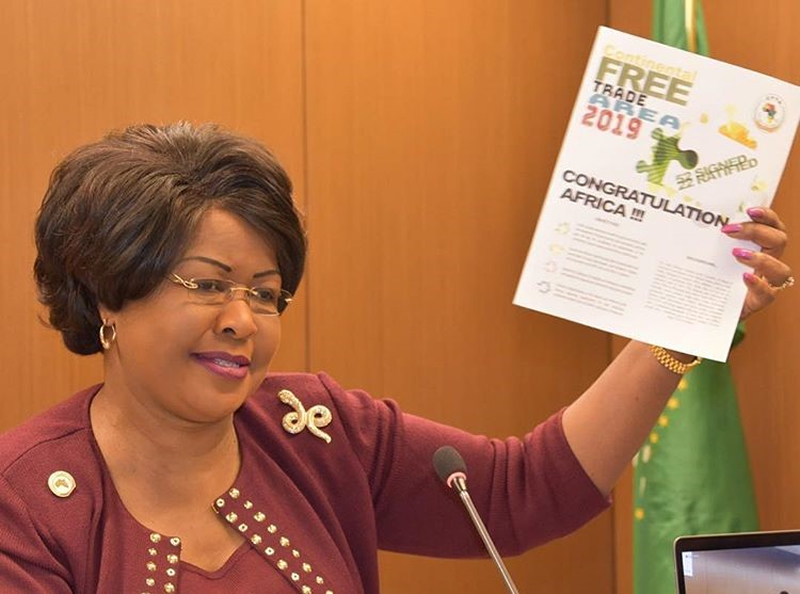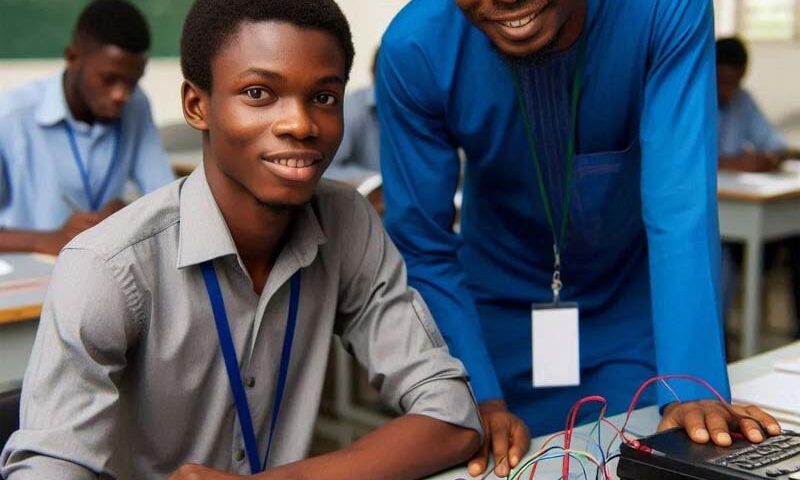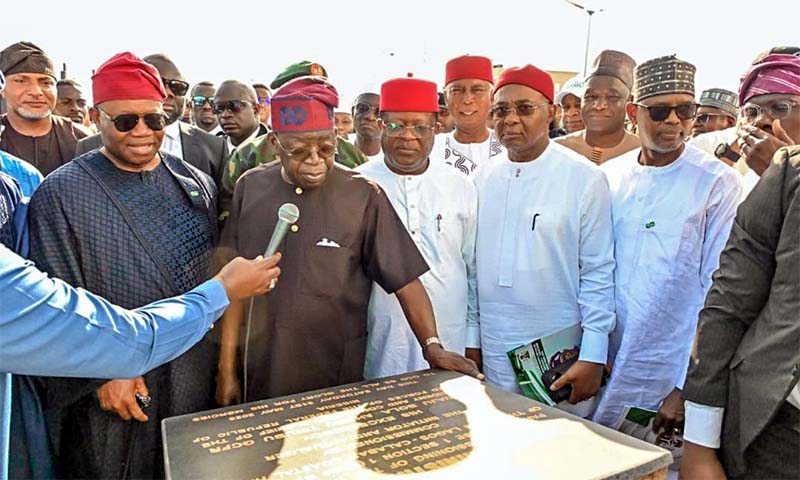“How much do we understand our Africa? Why is it that the richest continent on Earth is painted as the poorest?”
Outside the elite circle of activists in the African diaspora community or the small gang of progressive journalists who appreciate her cause, Her Excellency Dr. Arikana Chinombori Quao may not be a household name. Yet the message of truth she bears re-echoes every day in the plundered cities, the poverty-stricken villages, and in the chambers of power in Africa.
Despite her pedigree and accomplishment in her chosen career as a family medical doctor and successful entrepreneur, Dr. Chihombori-Quao, until recently, would only have been recorded as one illustrious diaspora African in the United States. Had she minded her business or turned down the political position offered her by the African Union (AU), she might not have had the meteoric shot into a global spotlight that has trailed her in the last few years. An accomplished professional and community personality, cautiously distant from the blighting importunities of showbiz, Arikana was just a fine, proud African mama deploying her talents, time and treasure to global health philanthropy and projecting Africa until Providence created a political launch-pad for her aspirations.
Upon acceptance of her appointment as the AU Permanent Representative to the United States of America in December 2016, Dr. Chihombori-Quao mustered her entrepreneurial drive and activism to galvanize peoples of African descent against current neo-colonialism and continuous western interference in Africa. In powerful speeches calling for African unification, she spoke out strongly against colonial pillaging of Africa, and picked out France especially, for atrocious neo-colonial exploitation of its colonies nearly fifty years after these countries became independent.
In one of such speeches, she had told the world: “We are the original people and we have every reason to stand up on the tallest mountains to proclaim who we are…We are beautiful, intelligent, sophisticated, highly adaptable and totally indestructible people – the Africans.” In justification of this indestructibility, she had remarked: “Any other race that would have gone through what we’ve been subjected to would have been extinct and that’s the truth.” Consequently, “…for Africa to take its rightful place on the world stage,” she argued that, “the gutter of the mind that we have lived in for centuries, must be cleaned out.” Speaking at another forum about how Europe underdeveloped Africa she observed: “Everybody is talking about the monkeys and the squirrels in the room, but no one wants to touch the 10,000-pound gorilla in the room, and that is our thinking, of the African people. How much do we understand our Africa? Why is it that the richest continent on Earth is painted as the poorest?”
Taking a swipe at the most virulent of colonial interlopers, she stated: “Today, France is taking out of Francophone Africa over US$500 billion. We, the Africans, the poor countries, are giving France US$500 billion year-in year-out.” She argued further that Africa must tell “France that the $500 billion you are taking out of Africa every year, no more. France needs to be the Third World developing country, not Africa. No more shall we continue to be exploited. France can no longer take $500 billion out of Africa.”

“France is taking out of Francophone Africa over US$500 billion. We, the Africans, the poor countries, are giving France US$500 billion year-in year-out.”
Shortly after these comments, Dr. Quao was unilaterally relieved of her position as the AU ambassador to the US by the AU Commission chairman, Chad President Moussa Faki Mahama who holds the African Union presidency in 2019. Enraged by the unjustified dismissal, a section of the African diaspora community petitioned the AU authorities and demanded her reinstatement. This diaspora community that knew her and her activities quite well felt she must have been dismissed for being outspoken and critical of neo-colonial tendencies fostered by the West, especially France, to keep Africa in perpetual poverty. To get to the root of the matter they had raised the following questions: “Why was she dismissed, or better, who benefits from her removal? Were African heads of state and governments consulted? Who called the shot? Or is Africa, and peoples of African descent, still facing the debilitating effects of modern colonialism or neo-colonialism?”
However, in reaction to the petition and growing antagonism towards the AU over the matter, the AU in a November 19, 2019 communique stated that Arikana was dismissed for the way she misconducted herself while in office. According to the AU statement, “a high-level team was deployed to the AU Representational Mission to the USA in Washington DC from 16 to 26 October 2019 to carry out a supervisory audit of the Office activities. During this mission, the team found evidence, corroborated by Dr Quao that she initiated and implemented with AU funds, activities of the following entities that have no AUC formal approval or legal link to the African Union, nor any of its organs.” The statement further added that the “team found that the above entities, initiatives, associations and/or corporates have conducted” some activities backed by Dr. Quao “without prior knowledge or consent and against the rules of the African Union.”
Just like usual trite defences given by governments in trumped-up charges against oppositions, the AU supposedly investigated the allegation only after it had issued a dismissal letter. Little wonder, former president Jerry Rawlings would question the independence of the AU and criticise the dismissal as a “shameful behaviour” and “an act that can be described as coming from French-controlled colonised minds”.
For the benefit of those who do not understand the import of Chihombori-Quao’s revelation, it is pertinent that the predicament of the African people in the hands of colonial interlopers is put in perspective. As well documented in Walter Rodney’s 1972 book, How Europe Underdeveloped Africa and Kwame Nkrumah’s 1965 seminal work, Neo-Colonialism: The Last Stage Of Imperialism, since the 1950s when France literally plundered and destroyed Sekou Toure’s Guinea over the latter’s clamour for independence, French African colonies have maintained a colonization continuation pact that puts $500 billion yearly into French Treasury. This psychopathic blend of paternalism and parasitism justifies the irrational sum as colonial tax for the benefits of slavery and colonization. Besides, the pact also demands that African countries deposit their national monetary reserves in the Central Bank of France, report to France annual reserve and balance, and also privileges France with the right of first refusal on any raw or natural resource discovered in the ex-colonies.
Among others, the pact also grants first consideration to French companies and interests in the award of government contracts; exclusive right to supply military equipment and train the country military officers; right for France to pre-deploy troops and intervene militarily in the country to defend its interests; obligation to make French the official language of the country and the language for education; obligation to use France colonial currency FCFA; renunciation to enter into military alliance with any other country unless authorised by France; and obligation to ally with France in situation of war or global crisis.
“Africa must tell “France that the $500 billion you are taking out of Africa every year, no more.”
To accentuate the pivotal role Africa has played in the socio-economic well-being of France, former Prime Minister of France, Francois Mitterand, as France’s Minister of Justice in 1957 was quoted as saying: “Without Africa, France will have no history in the 21st century.” Re-echoing the same remark more than half a century later, Jacques Chirac, in 2008, had this to say of Africa: “Without Africa, France will slide down into the rank of a Third World power.” Aidan O’Brien, in a remark about France’s colonisation of Africa eloquently captures France’s octopoidal grip on Africa states: “In a giant pincer movement beginning around 1830 and ending on the eve of the First World war, France slowly but surely conquered most of West and Central Africa. Moving east from Dakar and south from Algiers the French military stole probably 40 per cent of the continent.”
It is this monumental wickedness and barbarism of countries that claim to be on a civilising mission, as well as the treachery of conniving African leaders that Dr. Quao has remarkably drawn our attention to.
We commend the courage of her conviction and for her whistle-blowing. With a consistency that is continuously probing, she has used her voice to explain what Birago Diop rendered in his poem The Vultures. She has revealed the deception of “..those days/When civilization kicked us in the face/When holy water slapped our cringing brows.” She has also exposed the inhumanity of “… foreigners who did not seem human…who knew all the books but knew not to love”. She has also identified in our African brother’s collaborators who forget that “…our hands …fertilise the womb of the earth.”
We also salute her sacrifice – for sticking out her neck even after losing her job. Like the biblical tiller who has put his hands on the plough and must not look back, Arikana has set in motion a revolution that should be irrevocable. She has ruffled feathers, stepped on toes and upset the hornet’s nest. And as it is when one fights with swine in the mud, Arikana should be ready to be smeared and pelted with sludge. Some more desperate aggrieved persons will assassinate her character and even threaten her life. There is nowhere corruption has been fought without it fighting back. The Belgian government did it to Patrice Lumumba, when the fear of truth caused them to chop Lumumba’s corpse to pieces after a dastardly assassination. The French elite politicians caused Sylvano Olympio to face the same fate when he criticised France’s centralisation of its currency in West Africa. The same fate befell Thomas Sankara, whose promising reform in Burkina Faso angered the colonial Franco-Africa patrons.
Like others who have been blackmailed, vilified, and even exterminated, we know the fate that awaits her. But we hope nothing happens to this significant woman because any attack on her or her followers is an attack on the one billion people of Africa.
It was not mere activism that has catapulted her to global renown, but the value and quality of life expended in the cause she has chosen to fight. We are used to activists who assume that by consistent noise-making unaccompanied by impact and public-spirited actions they would gain cheap popularity. But Chihombori-Quao emerges from a different plain, where personal comfort and convenience are sacrificed for the greater good. In this way, she has willingly committed class suicide.
BORN in a village in Chivhu, Zimbabwe, Arikana Chihombori Quao had her early education in her home country before emigrating to the United States of America in 1977 in pursuit of higher education. She attended Fisk University and Meharry Medical College. She holds a bachelor’s degree in General Chemistry, a master’s degree in Organic Chemistry, and a doctorate in medicine. Upon graduation from medical school in 1986, she did three years of General Surgery at the State University of New York in Brooklyn, NY, USA, and another residency in Family Medicine at Meharry Medical College in Nashville, Tennessee.
Before her appointment as the AU ambassador to the US, Dr. Quao was a renowned family medicine doctor in Murfreesboro, Tennessee where she has been practising medicine for nearly 30 years. She has also been actively involved in various programmes and projects of the African Union. Since 2012, she was the Chair of the African Union-African Diaspora Health Initiative (AU-ADHI) where she was involved in mobilising the African Diaspora health professionals to assist in addressing the healthcare crisis in Africa.
In a dramatic display of strategic, activistic philanthropy, she purchased the historic Durban Manor Hotel – once a whites-only all-male hotel and club – now a place for cultural heritage tourism and intellectual engagement. In another ironic twist, Dr. Chihombori-Quao, who is averse to the use of such terms as ‘Francophone’ and ‘Anglophone’, bought a former Tennessee slave plantation from White owners and christened it ‘African House’ and turned it into a cultural sanctuary with the goal of revolutionising health care in African countries.
Noted for her philanthropy, dedication and commitment to promoting women’s rights around the world, Quao was honoured by Africa Resources with an Achievement Award presented by the then Presidents Nelson Mandela and Robert Mugabe in 1998. This was her first major distinction, which she highly appreciates and cherishes. In September 2013, she was one of four women who represented Africa at the International Conference on Women’s Rights, hosted by the Government of Argentina in Mar Del Plata, Argentina. She delivered a moving speech on the topic, “Violence against Women and its Worldwide Effect.” At this conference, Dr. Quao was said to have shared the stage with two Nobel Peace Prize winners: Rigoberto Menchu of Guatemala and Alfonso Perez Esquivel of Argentina.
At the 25th AU Summit held in Johannesburg, South Africa, in 2015, Dr. Chihombori Quao was one of the 15 women who received the “Women of Excellence Award” alongside President Ellen Johnson Sirleaf of Liberia, Mrs. Joyce Banda, former President of Malawi, and Mrs. Winnie Mandela, the former First Lady of South Africa, as well as several other prominent and remarkable African women. Dr. Quao is married to a Ghanaian medical doctor and Internal Medicine expert, Dr. Saban Nii Quao, by whom she had five children. Together they opened a chain of family medical clinics, among which is Bell Family Medical Centres where she is Chief Executive Officer.
ARIKANA is a gadfly that has stung many sober and slumbering African activists from redundancy to a new awakening. The pungency of her stinging power should jolt well-meaning Africans to a new consciousness. Her life is a lesson in genuine courage and a clear statement of sacrifice to rabble-rousers and closet activists and scavengers dining at night with African devils in power and blowing empty highfalutin air in the day.
It is refreshing to note that it took an African woman to open the eyes of Africa’s male-dominated leadership. Her perceptivity and intuition as a mother are brought out in bold relief by her strong criticism. Through the content of her character and the stringency of her voice, she telegraphs a high level of personal human dignity and virtue of responsibility that portrays her as a true mother who thinks about the future of her children. Perhaps, if African women in politics could muster this peculiar courage, sensitivity, and exude the same perspicacity and intuition, a new consciousness would emerge in the African political space.
The African diaspora community should also be commended for standing by the truth. They have demonstrated by their solidarity with Dr. Chihombori-Quao that they are concerned about the predicament of Africa and its people. They have also shown that they are not like the bastard who points to his father’s house with his left hand, for they know they have an origin somewhere.
Granted that France had been living a mistake in perpetuating the ‘Colonial Tax’, and granted that other western powers remain deluded by the grandeur of their colonial past, it is high time African leaders joined the train of a renewed consciousness, woke up from the delirium of sweet naked power and graduated from paternalistic and parasitic relationship with the ex-colonialists to genuine partnership. African leaders should once again endeavour to understand that in the devious neo-colonial manipulations operative on the continent, brothers have been turned enemies against brothers.
Arikana’s global popularity also affords discerning Africans another opportunity to reflect on their history. The need for re-historicisation of the African reality reflects the primary task of touching base with our being – knowing who we are, our culture and our destiny. The relevance of this task demands that cultural studies and history become part of the pedagogic tools in our quest for all-round development. For many years history was not taught in secondary schools based on the argument that it does not accrue any immediate economic benefit to the student. This was a great disservice to any nation that dared to understand its past and understand how it has shaped the presence and how it affects the vision of the future. But thanks to the providence of good reason, that mistaken decision has been rescinded by many states in Nigeria, Africa’s most populous country and tower of strength for Africa and the black race.
Contrary to Kwame Nkrumah’s submission that neo-colonialism is the last stage of imperialism, the scourge (imperialism) still persists in various ways. In today’s Africa, it continues as globalisation and currently as Chinese invasion of Africa. And in both forms, it draws in able acolytes from greedy, gullible African elite. In this regard, the internalist thesis of the African predicament as explicated by George Ayittey in Africa Betrayed is very instructive. According to this thesis, the present state of African underdevelopment is traceable to internal factors. To substantiate their claim, proponents of the internalist thesis refer to the graft and poor leadership credential of African leaders, who deliberately distort the concept of power to the benefit of the ruling class and their foreign superiors.
The thesis further argues that Africa is where it is today because of the selfish acquisitive tendencies and the love of power of political actors.” Indeed Africa has been infiltrated by ‘opportunists’, who, working for a dubious neo-liberal capitalistic world economy, collude with local scavengers, to overlook the disregard for rule of law and gloss over the profligate leadership of African rulers and politicians. By so doing, these opportunists foster a partnership that relishes the already disproportionate distribution of power and wealth between the north and south, the rich developed world and the poor African continent. Under whatever guise African is under siege.
In the main, the stringency of Dr. Chihombori-Quao’s voice resonating all over the world is a reminder that African leaders and their people need proper education, rights and empowerment education built on the culture of courage, self-reliance and respect as well as on the civilization of love. This is necessary to extricate them from the shackles of the economy and political slavery: first, internal slavery consistently carried out by persons in power and secondly, the ‘disadvantaging’ of the weak and poor African perpetrated by the powerful countries of the West.
Perhaps, Arikana’s African crusade maybe 44 years late since the late General Murtala Muhammed on January 11, 1976 stood up to US President Gerald Ford in the following words: “Africa has come of age. It’s no longer under the orbit of any extra continental power.” Still, it is better late than never. Rick Warren, cleric and author of Christian motivational classic The Purpose-driven Life, stated that there are some prominent people who are not significant, just as there are some significant people who are not prominent. He avers that what God is looking out for are significant people who can change the world. Certainly, Dr. Arikana Chihomori Quao may not have been prominent in Africa, but she is significant, at this juncture when Africa needs a significant voice to make her really come of age.
Meanwhile, the fruits of her crusade have been noticeable around the world capitals, notably in Paris where French President Emmanuel Macron seems unable to stand the heat as some French-speaking West African countries are already demanding reparation.
“for Africa to take its rightful place on the world stage,” she argued that, “the gutter of the mind that we have lived in for centuries, must be cleaned out.”
Specifically, on Saturday, December 21, 2019, French President Emmanuel Macron and his Ivoirian counterpart, Alassane Ouattara, announced a curious package of “historic reforms” of the 70-year-old West African CFA monetary Zone. Macron strangely explained that the reforms were part of an effort to reposition the partnership between France and Africa often perceived “in terms of domination and the trappings of colonialism that did exist”, but which he claimed to be “a profound error”.
As earlier stated, the CFA was created in 1945 as a currency for France’s colonial dependencies. It comprises eight countries: Côte d’Ivoire, Burkina Faso, Senegal, Togo, Benin, Niger, Mali and Guinea-Bissau. They operate a customs and currency union (WAEMU) and a regional central bank, BCEAO, with headquarters in Dakar, Senegal in West Africa.
This curious pre-emptive arrangement has come under fire as a symbol of France’s continuing stranglehold over Africa. Under the currency union, each member-country is obliged to keep 65% of its foreign reserves in an “operations account” in the French Treasury, as well as another 20% to cover basic financial liabilities. Paris maintains a cap on credit extended to each member country up to a maximum of 20% of its public revenue in the preceding year. Although the BCEAO has an overdraft facility with the French Treasury, the drawdowns on such facilities are subject to the consent of the French Treasury and based on strictly commercial terms. The French Treasury invests all the foreign reserves in its own name on the Paris Bourse. The countries are never told what profits or losses have been incurred over time.
It should be noted that the BCEAO has no monetary policy of its own. French officials are on the boards of the key institutions and reserve veto powers on important decisions. In 1994, the French Treasury imposed a unilateral 50 per cent devaluation of the CFA, amidst protests throughout Francophone West Africa. In 1999, when France joined the European single currency, the CFA was arbitrarily pegged to the Euro.
The CFA is the visible symbol of a complex architecture of informal Empire — “Françafrique” — that has allowed France to commit daylight robbery and pillage on the African continent. When Charles de Gaulle offered the Greek gift of “independence within the French community” in 1957, Sekou Toure of Guinea was the only leader who had the courage to say “non”; declaring that his people preferred “freedom in poverty to opulence in slavery”. As a deterrent to those who might have a similar idea, the French behaved like savage barbarians; destroying vehicles, offices, schools, farms, industries, hospitals and even typewriters. They even shot cattle in ranches. What they could not destroy they threw into the lagoon. They left Guinea in ruins. There have been numerous consequences of rebellion to Paris, in this connection, as earlier chronicled.
In 1962, Modibo Keita of Mali withdrew from the Franc Zone. He was later overthrown in a military coup by a former French legionnaire, Lieutenant Moussa Traore. In 1963, Sylvanus Olympio, the LSE-educated economist and first president of Togo, took the fateful decision to create a separate currency for his country. He was assassinated by a French agent and sergeant-major, Etienne Gnassingbe Eyadema.
But it is time to examine the shenanigan of Macron while responding to the fire stoked by Dr. Chihombori-Quao: The reforms of the West African CFA are reported to cover four essential areas: the name is to be changed to “Eco”, with external reserves no longer to be managed by the French Treasury. No French officials will be represented on the boards of the key institutions of the currency union while the external reserves will no longer be managed by the French Treasury. However, France will remain the guarantor of last resort, very much as before. The Banque de France will guarantee convertibility between the Eco and the Euro, which is preposterous in the extreme. This is a new weapon that African leaders should shoot down, lest Dr. Chihombori-Quao’s fight is in vain. The latest phony reforms are certainly the outcome of a collision between Emmanuel Macron and some west African leaders.
Macron and his ilk, however, must be told in clear terms that, indeed, “Africa has come of age” and will no longer accept dictations from any western capital.
That would be the real tribute to The Guardian’s ‘Person of the Year 2019’, Dr. Arikana Chihombori-Quao, a true Princess of Africa!






